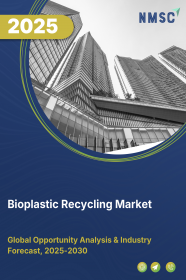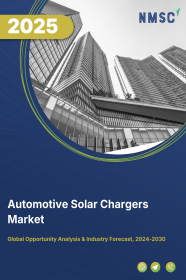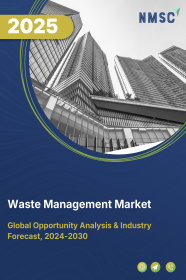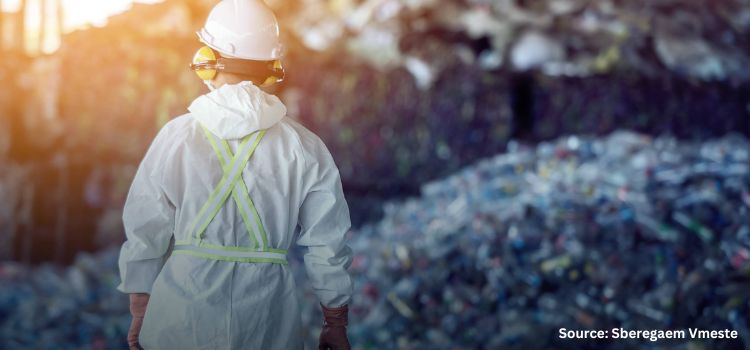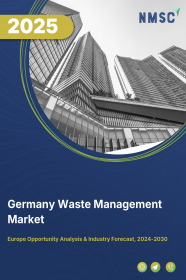
Germany Waste Management Market by Waste Type (Municipal Solid Waste (MSW) or Household, and Industrial) and by Waste Treatment (Composting, Incineration, Controlled Landfill, Uncontrolled Landfill, Sanitary Landfill, Open Dump, and Recycling)– Opportunity Analysis and Industry Forecast, 2024 – 2030
Industry: Energy & Power | Publish Date: 17-Feb-2025 | No of Pages: 145 | No. of Tables: 111 | No. of Figures: 56 | Format: PDF | Report Code : EP1246
US Tariff Impact on Germany Waste Management Market
Trump Tariffs Are Reshaping Global Business
Germany Waste Management Market Overview
Germany Waste Management Market size was valued at USD 11.23 billion in 2023, and is predicted to reach USD 15.25 billion by 2030, at a CAGR of 3.40% from 2024 to 2030.
Germany waste management market involves a wide range of services and activities aimed at managing and mitigating the impact of waste generated by various sectors including residential, commercial, industrial, and healthcare. It includes the collection, transportation, processing, recycling, and disposal of waste materials in a manner that is environmentally responsible and sustainable.
The market also involves the development and implementation of technologies and practices that promote waste reduction, resource recovery, and the safe handling of hazardous materials. Key components of the waste reduction market include waste collection services, recycling facilities, waste-to-energy plants, landfill operations, and environmental consulting services.
As awareness of environmental issues grows, the waste reduction market continues to expand, driven by growing population, technological advancements, and increasing public demand for sustainable waste solutions.
Government Initiatives are Fueling the Growth of the Market in the Country
Germany’s sophisticated waste processing systems and high recycling rates enhance efficiency and effectiveness that leads to improved waste diversion and reduction. The country's robust systems for waste processing and recycling enhance efficiency and effectiveness, leading to improved waste diversion and reduction.
As per the Federal Ministry for the Environment, Nature Conservation, Nuclear Safety and Consumer Protection (BMUV) report 2023, the country’s management infrastructure comprises 14,500 facilities that achieves high rates of recycling for municipal waste 67%, production and commercial waste around 70% and construction and demolition waste almost 90%.
Moreover, Germany generated 356.1 million tonnes of hazardous waste in 2020 as compared to 322.2 million tonnes in 2009. Furthermore, according to the European Environment Agency report 2023, 47.8% of the materials were recycled and 19.3% went to composting/digestion, resulting in a total recycling rate of 67% in 2020. These advancements not only support sustainable waste management practices but also contribute to the overall expansion and innovation within the industry.
Innovations by Key Market Players Accelerates the Growth of Waste Management Market
The innovative product launches by key players in Germany are driving the growth of the waste management market. By introducing cutting-edge technologies and solutions, companies enhance waste processing efficiency, improve recycling rates, and address emerging environmental challenges.
For example, in February 2024, LyondellBasell launched an advanced recycling facility in Germany to minimize the release of fine plastic dust during the manufacturing process, reducing environmental impact and enhancing sustainability efforts. Such innovations not only strengthen the Germany waste management market growth but as a leader in advanced waste handling practices.
Stringent Regulations and Compliance Standards Restrains Market Growth
Stringent environmental regulations and compliance standards significantly increase operational costs for companies, creating a substantial financial burden. These regulations often require companies to invest in advanced technologies and processes to meet compliance, that can limit their ability to expand and innovate.
The Adoption of Waste-To-Energy Technologies Creates Future Growth Opportunities in the Market
The adoption of waste-to-energy technologies such as incineration, anaerobic digestion, and gasification presents a significant growth opportunity for the waste management market as these technologies convert waste materials into usable energy, reducing landfill dependency and contributing to sustainable energy generation.
By transforming waste into a valuable resource, waste-to-energy solutions promote environmental sustainability and drive the Germany waste management market expansion. This innovative approach aligns with global trends toward circular economy practices and offers economic benefits by generating energy from waste that creates a promising avenue for growth of the waste reduction sector.
Competitive Landscape
The promising key players operating in Germany waste management industry includes ARCUS Greencycling Technologies GmbH, CircleBack, Cylib GmbH, LiBCycle GmbH, Gecycle Inc., Sensoneo, Resourcify GmbH, Solar Materials GmbH, Torezo GmbH, Remondis SE & Co. KG, Noventiz GmbH, SUEZ Group, Returo Entsorgungs GmbH, REMEX GmbH, MOBA Mobile Automation AG, and others.
Germany Waste Management Market Key Segments
By Waste Type
-
Municipal Solid Waste (MSW) or Household
-
Food
-
Paper and Cardboard
-
Plastic
-
Glass
-
Metal
-
Others
-
-
Industrial
-
Manufacturing Waste
-
Construction & Demolition Waste
-
Agriculture Waste
-
Other Industrial waste
-
By Waste Treatment
-
Composting
-
Incineration
-
Controlled Landfill
-
Uncontrolled Landfill
-
Sanitary Landfill
-
Open Dump
-
Recycling
Key Players
-
ARCUS Greencycling Technologies GmbH
-
Circleback
-
Cylib GmbH
-
LiBCycle GmbH
-
Gecycle Inc.
-
Sensoneo
-
Resourcify GmbH
-
Solar Materials GmbH
-
Torezo GmbH
-
Remondis SE & Co. KG
-
Noventiz GmbH
-
SUEZ Group
-
Returo Entsorgungs GmbH
-
REMEX GmbH
-
MOBA Mobile Automation AG
REPORT SCOPE AND SEGMENTATION:
|
Parameters |
Details |
|
Market Size Value in 2023 |
USD 11.23 billion |
|
Revenue Forecast in 2030 |
USD 15.25 billion |
|
Value Growth Rate |
CAGR of 3.40% from 2024 to 2030 |
|
Analysis Period |
2023–2030 |
|
Base Year Considered |
2023 |
|
Forecast Period |
2024–2030 |
|
Market Size Estimation |
Billion (USD) |
|
Growth Factors |
|
|
Companies Profiled |
10 |
|
Customization Scope |
Free customization (equivalent up to 80 working hours of analysts) after purchase. Addition or alteration to country, regional, and segment scope. |
|
Pricing and Purchase Options |
Avail customized purchase options to meet your exact research needs. |

















 Speak to Our Analyst
Speak to Our Analyst



